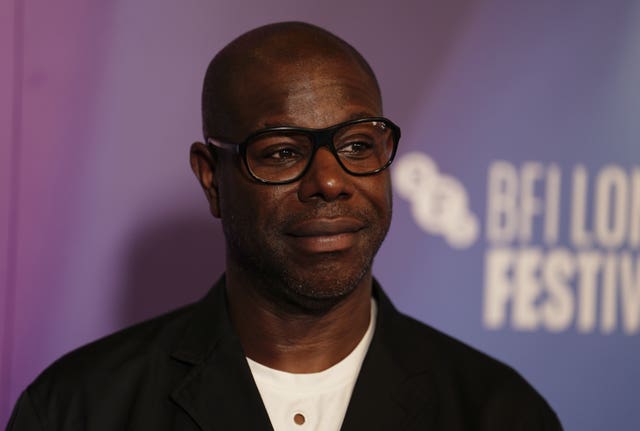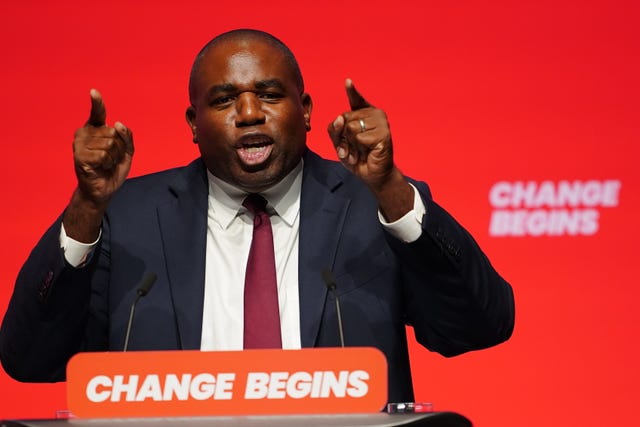Women are treated like “an alien species” by doctors, Health Secretary Wes Streeting said, as he criticised health inequalities in the NHS.
Mr Streeting said conditions such as menopause and endometriosis are treated as “rare” due to inequality in healthcare.
The Health Secretary also pointed to inequalities in prostate cancer diagnoses, with black men two and a half times more likely to die from the disease than white men.
His comments came during a Prostate Cancer Research event at Parliament, which was attended by a number of celebrities, including Claudia Winkleman, Gary Lineker and James Corden.
Earlier this month, Mr Streeting asked the NHS to look at lowering the screening age on prostate cancer, following Sir Chris Hoy’s call for more men to be screened after his own terminal diagnosis.
Speaking on Thursday, Mr Streeting said screenings could have a “huge part to play in bridging health inequalities” and said the UK National Screening Committee is “examining the case for population screening”.
“The data doesn’t lie, black men and those with a family history face two to three times greater risk of prostate cancer,” he said.
The minister added: “It is not lost on me that despite the fact that the NHS was founded in 1948, in the same year the Empire Windrush arrived on our shores, despite the fact that generation, their children, their grandchildren, increasingly great-grandchildren – terrifyingly – built the NHS, we still see real racial inequalities built into our health outcomes.
“And also discrimination is still baked into a national health service that has good values at its heart.
“It’s about addressing the needs of those who are systemically disadvantaged, and ensuring that no matter a person’s background or family history, they receive the same chances for early diagnosis, effective treatment, and ultimately survival.
“This can sometimes be a contested space. Why do we have equality and diversity in the NHS? These sorts of outcomes are exactly why.
“And I could give you equally stark statistics or equality dimensions, whether that’s black women being four times more likely to die in childbirth than white women.
“Or women, the majority of our country’s population, still being treated like an alien species with rare conditions when they turn up with things like menopause and endometriosis and polycystic ovary syndrome (PCOS).
“That’s why the work on equalities really matters because this, especially in this context, is a matter of life and death.”

Mr Streeting said he has asked for the prostate cancer guidance to GPs and the public to be urgently reviewed with fresh eyes and that “at the same time the UK National Screening Committee is examining the case for population screening and exploring targeted options for men of high risk”.
He added: “This review will be extensive. By March next year we will have the first stage of findings, a public consultation will follow, with final recommendations coming before the end of next year.
“And alongside this Government is getting behind groundbreaking research to make testing more accurate which could make any potential screening programme more successful.”
Film director Sir Steve McQueen also spoke at the event. Revealing he has previously received treatment for prostate cancer, he said: “I’m fully recovered in every way thanks to early detection, my treatment was a complete success, that is why I feel it is absolutely imperative to get every man tested.
“In some ways my father saved my life, because if my father hadn’t died of prostate cancer I wouldn’t be proactive in so many years of getting MRIs.”

“Just before the general election, the moment had arrived where I too had to work out: have I got this thing. And it’s fretful, it’s worrying, it’s scary, there’s months of deliberation and it was actually a surprise to me when the results came back and I’m doing OK.
“But very, very seriously, because of my own ethnic profile, and because these instances in my own family, it was a little bit hairy and a little bit scary.”
The chief executive of Prostate Cancer Research, Oliver Kemp, said: “Prostate cancer is taking too many lives, and our current system of ‘informed choice’ is failing those at greatest risk.
“Our report proves that targeted screening could save lives and alleviate the burden on our healthcare system by avoiding late-stage diagnoses and the associated treatments.
“We have also shown for the first time that a universal screening programme using existing technologies is within our grasp. It’s time we took concrete steps towards making that happen. It’s time to act and bring hope to thousands of men and their families across the UK.”






